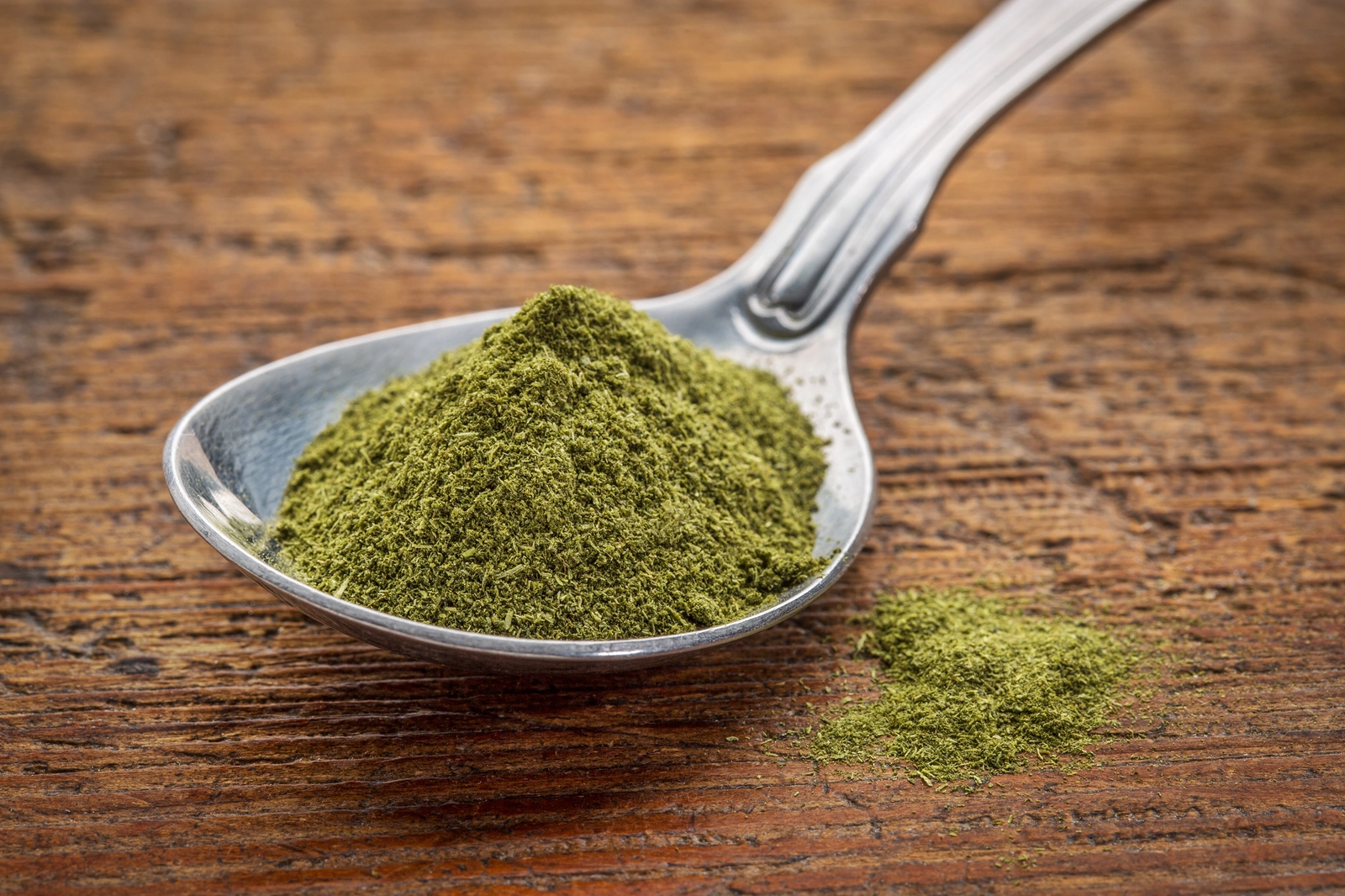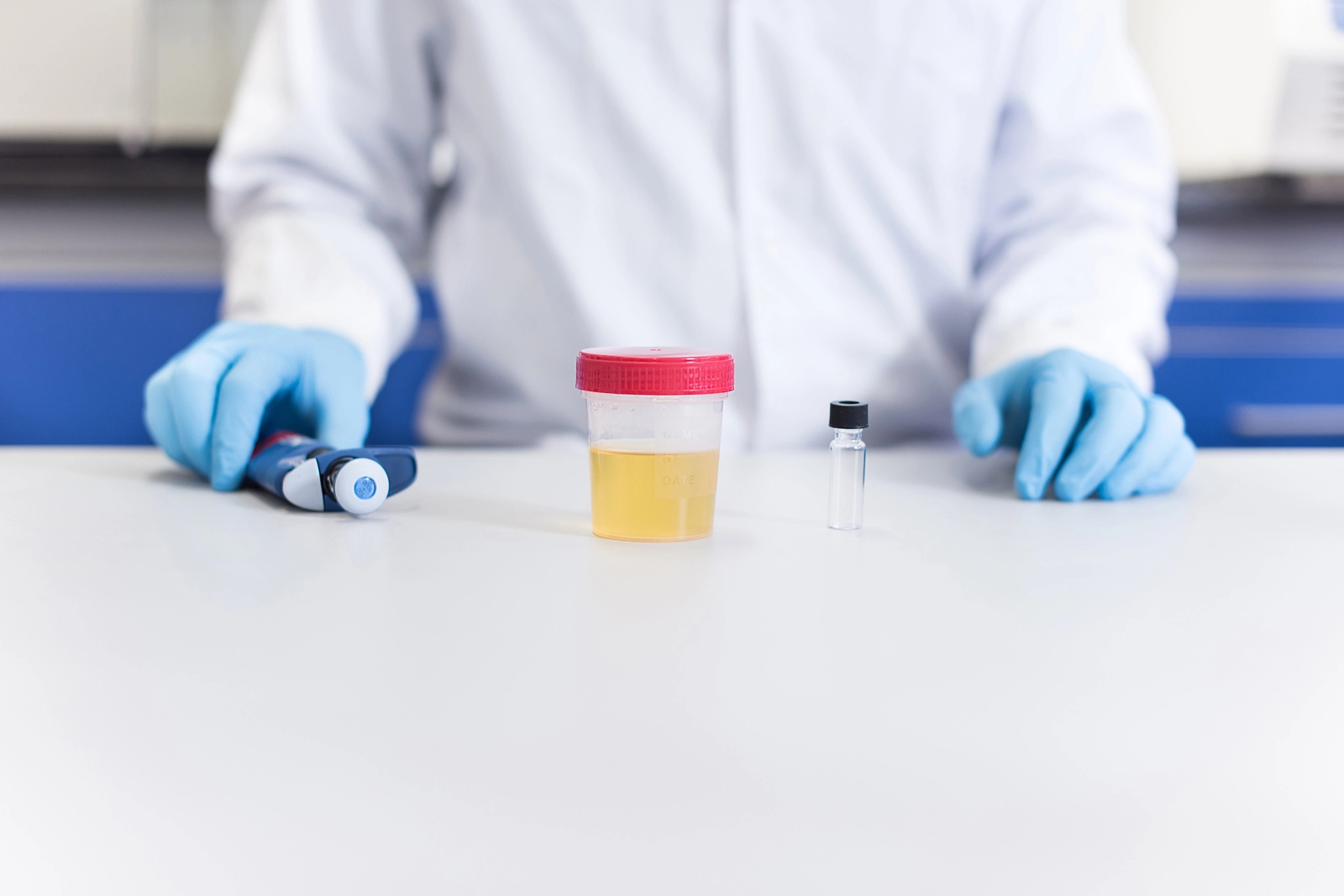How Long Does Kratom Stay in Your System? Kratom Detection Time

- Kratom, or Mitragyna speciosa, is a legal substance that’s considered a natural alternative to opioids for pain relief and energy.
- There are many forms and strains of kratom, which can impact how quickly its effects occur and how long they last.
- Kratom effects can occur within 10 to 30 minutes after ingestion, but this varies by several factors.
- Standard drug tests don’t detect kratom, but some specialized tests can.
Kratom is a substance that’s growing in popularity in the US as a natural remedy for pain and low energy. It’s widely used in Asian medicine for low energy and pain, but the FDA does not currently approve it and has minimal research into its effects and risks.
Though kratom is legal in many places, it’s banned in others. Most standard drug tests don’t check for kratom, but specialized tests may be able to detect the substance.
What Is Kratom?
Kratom is an herbal substance that’s derived from the leaves of the Mitragyna speciosa plant that grows in Southeast Asia. It’s been a staple in traditional Asian medicine and used for its stimulant and pain-relieving effects to aid laborers in overcoming fatigue and muscle pain. Kratom is grown in Thailand, Malaysia, Myanmar, and other areas in Southeast Asia. It’s considered an alternative to opium and other opioids.[1]
The active substance in kratom is mitragynine, which produces its opioid-like effects. The phytochemicals in kratom, mitragynine and 7-hydroxymitragynine, produce therapeutic effects but may also have toxicological properties.[2]
Because it’s widely available as an herbal remedy, kratom is regarded as a harmless alternative to opioids. However, kratom has side effects and risks.
How Is Kratom Used?
Kratom can be used in several ways, but it’s most often used as a liquid supplement. It also comes in capsules, tablets, and loose leaves that can be brewed into a tea. In Asian medicine, kratom acts as a stimulant in low doses and helps with low energy. In high doses, kratom can have euphoric and analgesic effects, which is why it’s often used as an alternative to opioids.
Effects of Kratom
Kratom can have variable effects depending on how it’s used and how potent the product is.
The effects of kratom may include:[3]
- High energy
- Sedation
- Talkativeness
- Pain relief
- Alertness
- Sweating
- Overheating
- Diarrhea
- Nausea
- Weight loss
How Long Do Kratom Effects Last?
The effects of kratom occur within 10 to 20 minutes after ingestion, but it can vary by method of use and the potency of the product.[4] Some people may see effects after just a few minutes, while others take half an hour. The effects can last 5 to 7 hours, depending on the dose.
According to research, a dose of 5 grams of kratom powder taken three times a day can cause effects.[5] However, individual factors like age, weight, and general health can influence how you react to kratom.
How Long Does Kratom Stay in Your System?
Based on existing research, the average half-life of kratom is about 24 hours.[5] Several factors can affect kratom elimination time, including:
- How it’s taken and dosage: High doses have a longer duration on average, so kratom may stay in the body longer if it’s ingested.
- Strains: Several strains of kratom have different potencies. White leaves are the most stimulating and may have effects lasting for hours, but green leaves are less potent and may have effects lasting only 8 hours.
- Individual factors: Individual differences, such as age and metabolism, may affect how the body processes the substance. Kratom is fat soluble, like marijuana so it may last longer in the body for heavy people.
- Diet: Using kratom with an empty stomach can have a shorter detection window compared to using it with food.
Does Kratom Show Up on Drug Tests?
Kratom is a relatively new substance in the US and some other countries. It’s not part of the standard 5-panel and 10-panel drug tests employers use to screen potential hires. Generally, these drug tests are limited to amphetamines, opioids, and other common drugs.
Specialized tests may detect kratom, however. Chromatography tests and urine drug screens that specifically include mitragynine and 7-hydroxymitragynine may detect kratom. Law enforcement and medical professionals, rather than employers, usually use these tests.
Keep in mind that drug tests may not detect kratom, but the metabolites of kratom can show as a false positive for another drug.
Kratom Drug Testing Detection Windows
There’s limited research into kratom detection windows in urine, blood, hair, and saliva tests. The substance is fairly new and requires specialized tests, so it’s not included in most standard drug tests.
However, most drug tests have long detection windows for the drugs they look for. Saliva tests can detect drug use within a few hours and up to a few days after use. Hair follicle testing can detect drug use months after the last use. Research suggests that these detection windows likely apply to kratom as well.[6]
What Happens If Kratom Shows Up on a Drug Test?
Kratom is legal in many places, but not all. If it shows up on a drug test, any legal concerns will depend on the laws in the local jurisdiction. Some states banned kratom, including Alabama, Arkansas, and Indiana. It’s legal in other states but may be banned in certain jurisdictions.
If you test positive in a jurisdiction that has banned kratom, there may be legal implications. On a federal level, kratom is a legal substance. The laws regarding it are left up to the individual jurisdiction.
Can I Get a Job If Kratom Shows Up on a Pre-Employment Screening?
Employers often use standard drug tests to search for illegal drug use in new hires or as part of routine drug testing for existing employees. Most often, the 5-point urinalysis test isn’t specialized enough for kratom.
States or jurisdictions that have banned kratom may have specialized testing to screen for the substance’s metabolites. This is more likely with employers with stringent drug rules, such as law enforcement, healthcare facilities, or government agencies. If you test positive for kratom, how it affects your employment depends on the employer.
Kratom Abuse and Addiction
Kratom use requires more research to understand its risks and effects. However, existing research indicates that the drug can cause psychoactive effects and may have a potential for abuse. If you use kratom chronically, you may develop a tolerance that can progress into an addiction.
If you use kratom often or at high doses and then stop suddenly, you may experience withdrawal. The withdrawal from kratom isn’t well established, but some symptoms include:[7]
- Sleep disturbances
- Loss of appetite
- Jerky limb movements
- Nausea and vomiting
- Cramping
- Abdominal pain
- Runny nose
- Diarrhea
- Cravings for kratom
- Hot flashes
- Sweating
- Tremors
- Nervousness
- Depressed mood
- Sadness
- Anger
Like any substance, withdrawal from kratom is more severe if you use it heavily or for long periods. Even if you’re concerned about a drug test, you should never quit kratom use suddenly if you’ve been using it for long periods or at high doses. Intense withdrawal can occur.
Kratom dosage should be tapered down slowly to reduce the likelihood and severity of withdrawal symptoms. In some cases, the withdrawal symptoms can be severe enough to cause relapse. It’s possible to detox from kratom at home, but it’s best to enter a medical detox environment. This provides a medical team to monitor your health and manage your symptoms.
If you struggle with addiction to kratom, an addiction treatment program after completing detox can help you understand and manage the social, emotional, and psychological causes of addiction. Inpatient and outpatient settings can be effective for understanding why you can’t control your kratom use and how to develop healthier habits.
Get Help for Kratom Addiction
Kratom can have powerful effects that occur within 10 to 30 minutes after use, but its effects can last 2 to 6 hours. If you use kratom regularly and are concerned about a drug test, you mustn’t quit suddenly, as it can cause withdrawal symptoms. Kratom use can cause addiction, so it’s best to enter a treatment program to address your substance use disorder.
Frequently Asked Questions About Kratom
Are you or a loved one struggling with Kratom addiction?

